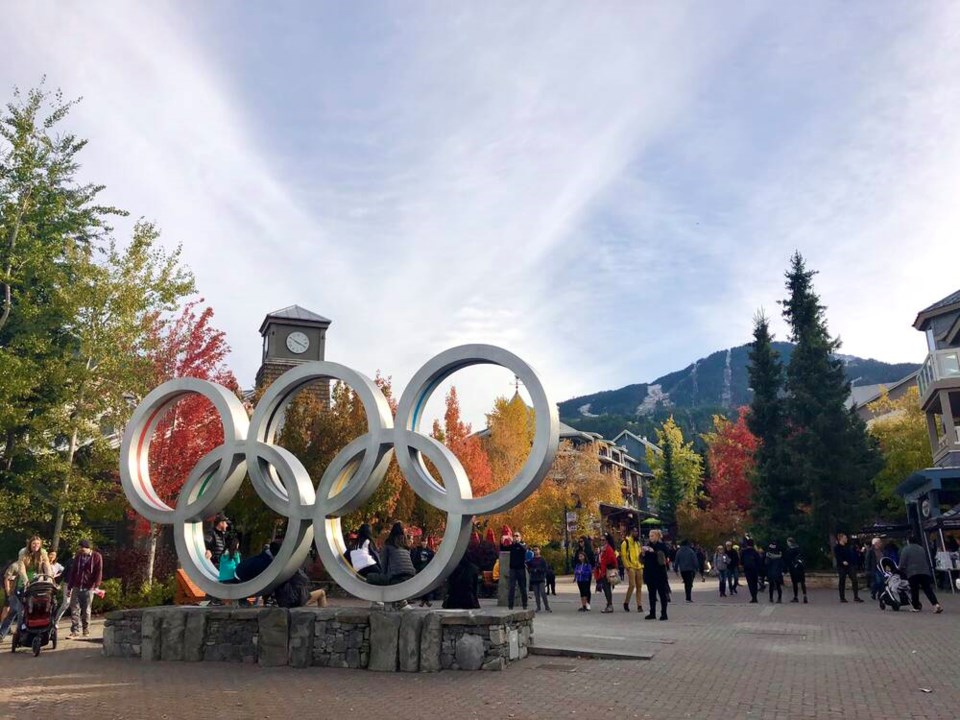First Nations communities were left in a state of disbelief last week, as the provincial government pulled its support for an Indigenous-led bid for the 2030 Olympic Games in Vancouver.
News of the decision to cancel the bid emerged Thursday with statements from Culture and Sport Minister Lisa Beare and Vancouver mayor-elect Ken Sim citing costs and complexities related to other upcoming global sporting events set to be held in the city.
As the information became public, elected Chief Jen Thomas of Tsleil-Waututh Nation called the decision “very disheartening.” Thomas said she caught wind of the province’s intentions in the week prior, and asked officials to hold off on making announcements for the time being.
“That didn't even happen,” she said. “It was upsetting to us, because we didn't even have the proper discussion with the province.
“We've invited the province to our table to have the discussion on the 2030 Olympics. And what happened was, they took their chairs away from our table, had the discussion on their own and made this [decision] without having any conversation with us,” Thomas continued.
Tsleil-Waututh Councillor Dennis Thomas, who has worked on the 2030 technical committee for the past year, said he was caught off guard by the unilateral decision to halt the Games, given that discussions up to this point had been so open on the parts of the four host Nations, which included Sḵwx̱wú7mesh (Squamish), xʷməθkʷəy̓əm (Musqueam) and Lil̓wat7úl (Líl̓wat) leaders.
“Throughout this process, we have been engaging all parties involved to join in this amazing journey of a true Indigenous-led Olympic Games, which has never been done before,” he said.
Coun. Thomas said the four Nations embedding their ways of being, laws and value systems within a mega-sports construct was such an authentic experience to define what it means for an event of that scale to be Indigenous-led.
“It’s a very good, holistic learning experience for all people involved within this process,” he said. “So it was a surprise that it just came to an end without having those meaningful conversations with the province.”
In her statement, Minister Beare said there are billions of dollars in direct costs, as well as other factors, that could jeopardize the government’s ability to address pressures facing British Columbians now. Beare, who replaced Melanie Mark last month, noted the province is already supporting the 2025 Invictus Games and 2026 FIFA World Cup.
In a separate statement, Vancouver mayor-elect Sim said early estimates for those events put costs to the city in the range of $130-200 million and that the 2010 Olympics cost the city $500 million.
“While we understand the reasoning behind the decision made today, this will no doubt be disappointing to host Nations who have put countless hours of time and energy into developing a bid,” he said.
But Chief Thomas said that the 2030 Nation-led bid was totally different because the host Nations haven’t been involved to the same extent in planning the other events.
Reflecting on last Tuesday’s approval of Vancouver’s UNDRIP (United Declaration on the Rights of Indigenous Peoples) strategy, she said the province is way behind the city when it comes to reconciliation.
Going forward, Coun. Thomas said he hopes this is a learning opportuning for both the B.C. NDP and the federal government.
“Hopefully, for the Invictus Games in the 2026 FIFA games, we can have a similar position and role … to be on this journey of reconciliation and UNDRIP with embedding our cultural values into these mega sporting events.”
At a press conference held Friday morning, Squamish Nation Councillor Sxwíxwtn (Wilson Williams) was verbally and visibly disheartened. He posed a question, “What is reconciliation from the perspective of the provincial and federal government?”
“I'll use a term that is commonly used amongst Indigenous leaders today,” he said. “Nothing about us without us.”
Wilson said true reconciliation wasn’t acted upon because the host Nations weren’t allowed the time to negotiate or have an extended dialogue with senior governments on what the Indigenous-led Olympic Games would look like.
“We didn't come to the table asking for a blank check,” Williams said. “We were given terms of, ‘This ain't the right time.’ When will be the right time for Indigenous peoples to be at the forefront in this so-called spirit of reconciliation?”
This article has been updated from its original version to include comments delivered at a press conference on Friday, Oct. 28.




